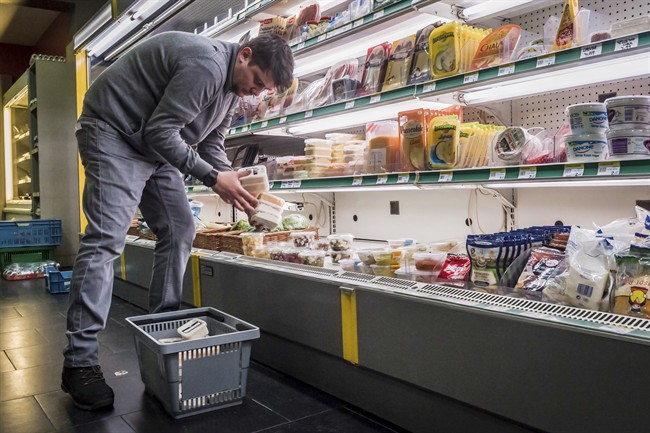In an effort to tackle issues of climate change and food insecurity California became the first state in the United States to officially introduce mandatory food waste recycling and salvaging of edible food waste.

At the start of 2022, the law known as Senate Bill 1383 went into effect mandating food waste be separated from both residential and commercial waste while also salvaging edible food.
“SB 1383 is the biggest change to our trash since we started recycling in the 1980s,” says Rachel Machi Wagoner, the director of Cal Recycle, the state’s recycling authority.
An estimated 5.5 million tons of food waste is sent to California landfills each year and it’s is one of the largest sources of methane gas emissions in the state.
“When organic waste goes to a landfill it actually breaks down in methane which is a potent greenhouse gas,” said Ned Spang from the Food Loss and Waste Collaborative at the University of California Davis.
The new law aims to reduce food waste sent to landfills by as much as 75 per cent by 2025.
“When we reach our 75 per cent goal of diverting organic waste from landfills, it is the equivalent of taking more than a million cars off the road for over a year,” said Machi Wagoner.
Vermont has already rolled out similar laws mandating composting of food waste there, but this law goes further than just reducing food waste and greenhouse gas emissions caused by discarded organic material. It also mandates a reduction in the amount of edible waste by 20 per cent and it’s the first state to do this.
Many restaurants and grocery stores routinely throw out produce and other food that is still edible. The initiative means that anything which is still edible will now go to those experiencing food insecurity in the state via charities committed to helping those in need.

Get daily National news
“From restaurants from retailers such as grocery stores, anytime they have food they may have thrown out before we want to first do a look at it and see if we can recover some of that food for edible consumption,” said Spang.

Almost two months have passed since the new law came into effect and residents of California are getting used to the shift. Cal Recycle’s director says she knows that this will take time to be adopted, and says they are committed to helping Californians jump on board with the new law. In time, fines can and will be levied for non-compliance but as residents familiarize themselves with the law, it’s all about grants to start the programs needed and education.
“We are giving grants to local governments – everything from the start-up of the collection program to educational campaigns,” said Machi Wagoner.
Small business owners like Ivan Franks who owns a small takeout restaurant called The Hotdogger in Davis, Calif., are on board with the new law but say they need more time and education.
“We have many issues with COVID shutting down. (Food recycling) seems to be one of the least concerning things that I have on my plate but if they can … teach us how to do it, great,” said Franks.
Other residents in California are happy to see a law targeting food waste come into effect.
“I can definitely say this is the one thing that makes me very happy to be from California,” said Joy Klineberg, a mom of five living in Davis who has been composting for years on her own and sees the benefits.
“Half of its going into the landfill and half of its being turned into compost and being reused so that to me is a huge difference,” said Klineberg.

States like New Jersey and New York have rolled out composting programs in the past but without strong mandates, patchwork rollouts and no recourse for non-compliance those programs have faltered. Seven years after New York City introduced its curbside organic waste pickup, only an estimated 10 per cent of residents were actually using the service according to the city.
As the most populous state in the country with more than 39 million residents, California will now serve as an example to other states looking to mandate and enforce food waste reduction in their states going forward.
– with files from Rob Malcolm








Comments
Want to discuss? Please read our Commenting Policy first.